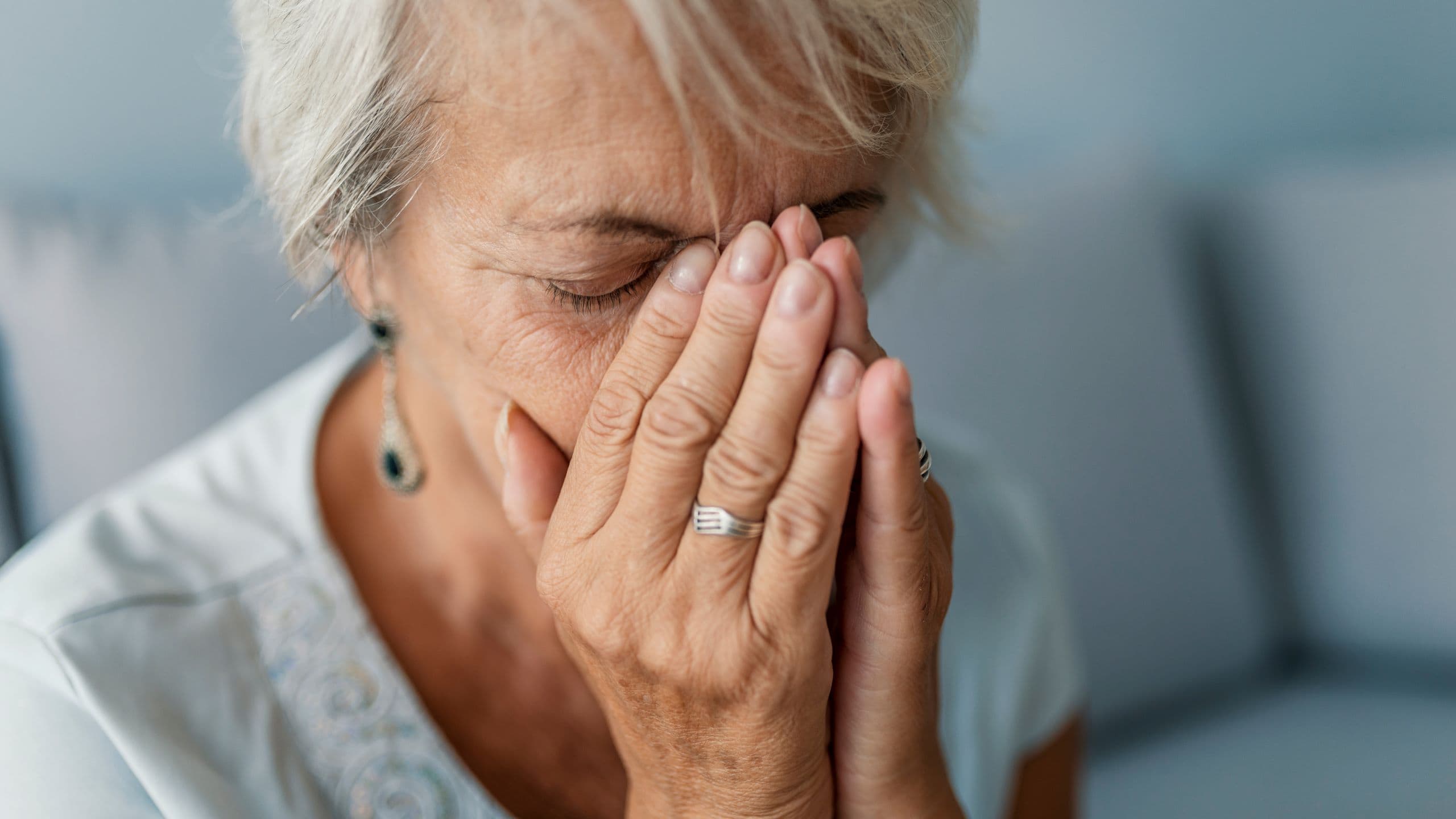Bereavement is a part of being human and will impact all of us at some point in our lives. However, losing a loved one is a deeply personal experience that can leave you feeling overwhelmed by emotions.
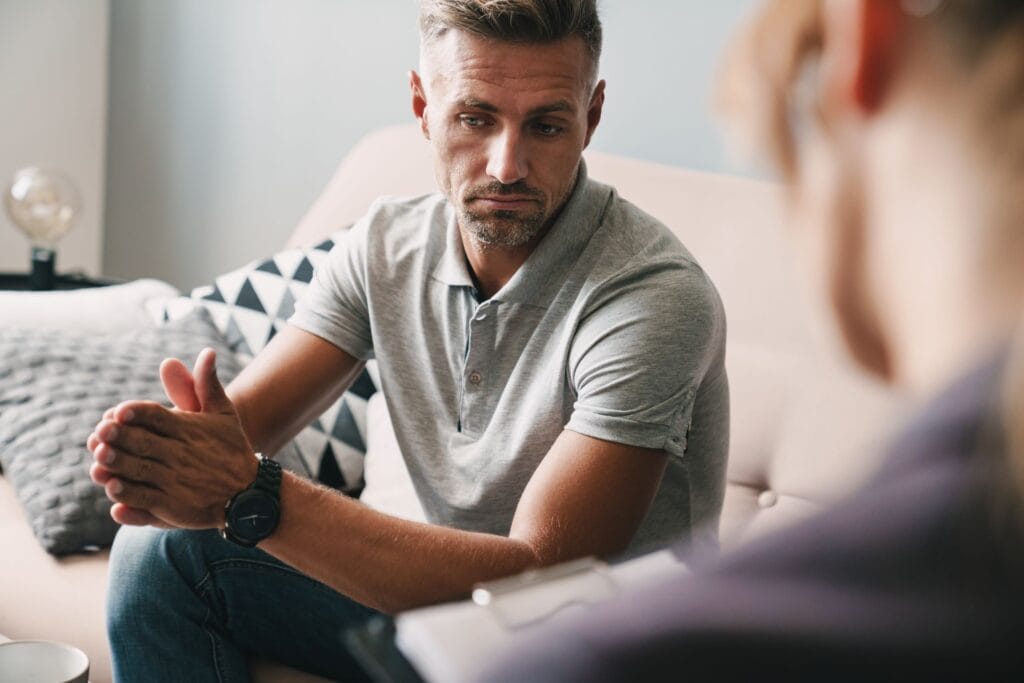
This article explores the various ways grief can manifest and what you can do if you are struggling to come to terms with the loss of someone close.
If you think you need counselling support for grief, please freephone The Spark in confidence on 0300 180 0444 during our opening hours. Or complete an enquiry form and we will call you back at a suitable time.
Responses to grief
Following a bereavement, you may go through a period of grief where it is common to experience a variety of psychological, emotional, physiological, and behavioural responses while readjusting to life without the person you lost.
Psychological Responses
You may have difficulty concentrating, low mood, anxiety, restlessness, find it hard to connect with others or accept the person has gone. It is common to focus your attention on the person you lost. You may find yourself ruminating over memories, including things you wish you had said or done, and you may express some regrets.
Emotional Responses
Some common emotional responses include shock, despair, anger, guilt, sadness, longing, anxiety, fear, resentment, and loneliness. You may have mood swings or find difficulty receiving words or acts of comfort. These emotional responses may impact your relationships and often others struggle to understand changes in your personality or to hold space for difficult feelings.
Physiological Responses
You might experience physiological changes which may last for some time. For example, changes in posture, restlessness, agitation, frequent crying and/or periods of numbness, increased physical pain, digestive or appetite changes/issues, insomnia/oversleeping, tiredness or lack of motivation.
Behavioural Responses
Especially in the early part of the grieving process, you may notice changes in your behaviour. Some common changes include increased use of substances (such as alcohol or cigarettes), avoiding people and/or work, lack of motivation or interest in usual hobbies and interests, unusually risky behaviour, or keeping busy to avoid thoughts or feelings.
Should you see a GP about your grief?
As grief isn’t an illness most people do not need to visit their GP, however, it is important that you recognise when additional support is necessary.
You might want to see a GP if:
- you’re worried about physical symptoms of grief
- you’re struggling to cope with stress, anxiety or a low mood
- you’ve had a low mood for more than 2 weeks
- things you’re trying yourself are not helping
- you would prefer to get a referral from a GP
Your GP may offer medication or signpost you to an appropriate organisation.
Complicated grief
For most people grief will become less intense over time. Some people, however, struggle to cope with their grief emotionally, psychologically and life may feel overwhelming and impossible many months or years later. This is known as complicated grief or prolonged grief disorder.
Symptoms of complicated grief include:
- very difficult feelings such as sadness or guilt for over 6 months.
- difficulty accepting the reality of your loss.
- not being able to re-engage with life.
If you recognise these signs, you may be suffering from complicated grief. You should consider speaking to your GP.
How can counselling for grief help?
Grief is different for everyone. It is important to remember there is no right or wrong way to respond to the loss of a loved one.
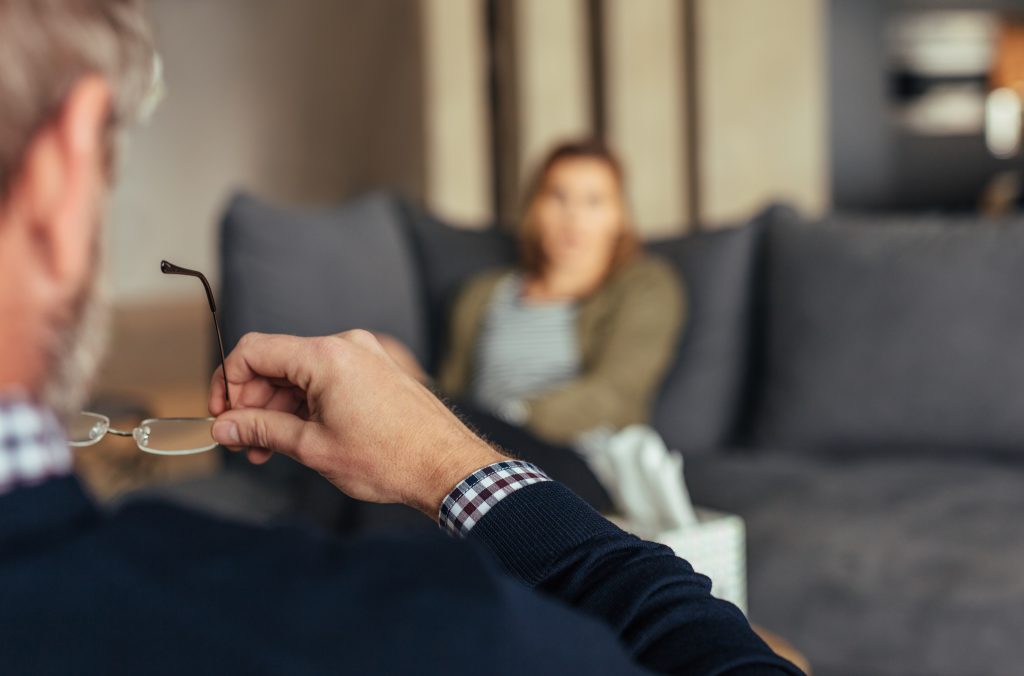
Well-intentioned but unhelpful messages such as ‘they would have wanted you to be happy’ or ‘you need to get on with life’ can make you feel ashamed about your process of grief which in turn may prevent you from sharing how you are feeling. This can leave you feeling isolated and guilty for feeling the way you do.
Counselling may help you by:
- Offering a safe, supportive, non-judgmental environment where you are accepted exactly as you are.
- Help you explore your feelings and process your loss. This may help you feel less overwhelmed.
- Help you find ways of connecting with your lost loved one while moving forward in a healthy way.
- Provide support and strategies for addressing anxiety, low mood and depression.
- Help you address any changes in behaviour which are not serving you.
- Explore ways of creating new meaning in your life.
- Reduces feelings of isolation.
If this is something you would like to explore, make a counselling enquiry by completing our online form or call 0300 180 0444.
When is the best time to have bereavement counselling?
There is no right time for you to engage in counselling. Everyone grieves differently and it is important not to rush the process and be compassionate with yourself about how you are feeling. Some signs that you may benefit from counselling include:
To find out more or book a counselling appointment, please complete our enquiry form or call 0300 180 0444.
What can I do to help myself when grieving?
Counsellors work with a range of theories and models of grief to help guide clients through the grieving process. One model which may help you explore helpful ways of processing your grief is the Dual Process Model of Grief.
Developed by Margaret Stroebe and Henk Schut, the model comprises of two aspects: loss-oriented (facing the grief) and restoration-oriented coping activities (building a new life without the person).
Stroebe and Schut propose that it is normal to fluctuate between the two and a healthy balance should be encouraged to allow you to resume daily life while attending to your grief.
Loss-oriented activities
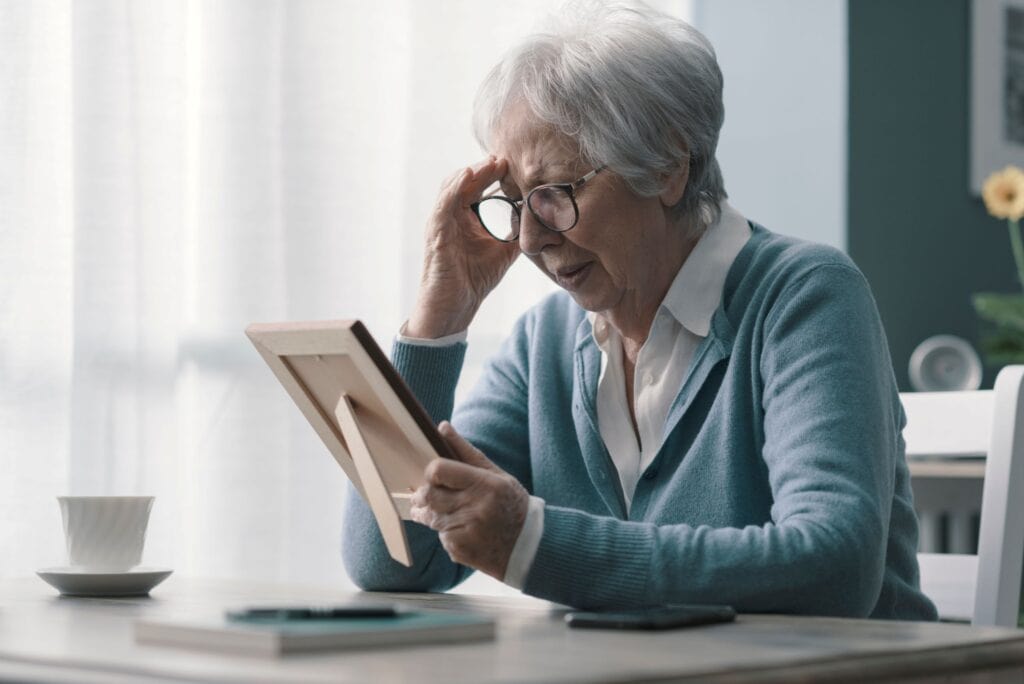
These may include acknowledging and facing your emotions as you grieve. Some activities that may help you include speaking to friends or family, journalling, looking through photographs or videos and creating rituals. For example, celebrating a birthday, visiting a place the person loved, or tending a grave. This will be unique to you and the options are endless. It is important to find what feels right for you. Some helpful loss-oriented activities include:
Making time and space to express your feelings – suppressing your emotions while grieving can delay the process and lead to complex grief.
Reaching out to people you trust for support – suppressing your emotions while grieving can delay the process and lead to complex grief.
Try journalling – many people find keeping a journal a helpful way of processing their feelings. Others may write poetry, lyrics or use art.
Understanding what you are experiencing is normal – especially during the early days, it is common to feel overwhelmed and imagining a life without the person may seem impossible for you. Know that with the right support and through processing grief, a new, meaningful life is possible.
Educating yourself about grief – reading books/articles about other people’s experiences of grief or learning about the models of grief (see below) can help you feel less alone and normalise your experience.
Understanding your grief may be triggered in the most unlikely of settings – for example, you might see or hear something that reminds you of the person which triggers a grief reaction. Know that this is perfectly normal and quite common.
Creating rituals for connection – rituals such as visiting a place you enjoyed together or cooking your favourite meal can all help you connect with the person and help you process your grief.
Being patient with yourself – trying to rush the grieving process is impossible. It is important to remember that although you may have times where you feel like it will never end, with the right support, a new, meaningful life is possible.
Ignoring others’ judgements – your grief is unique to you and others’ opinions of where you are do not matter. You will come to a place of acceptance in your own time.
Restoration-oriented activities
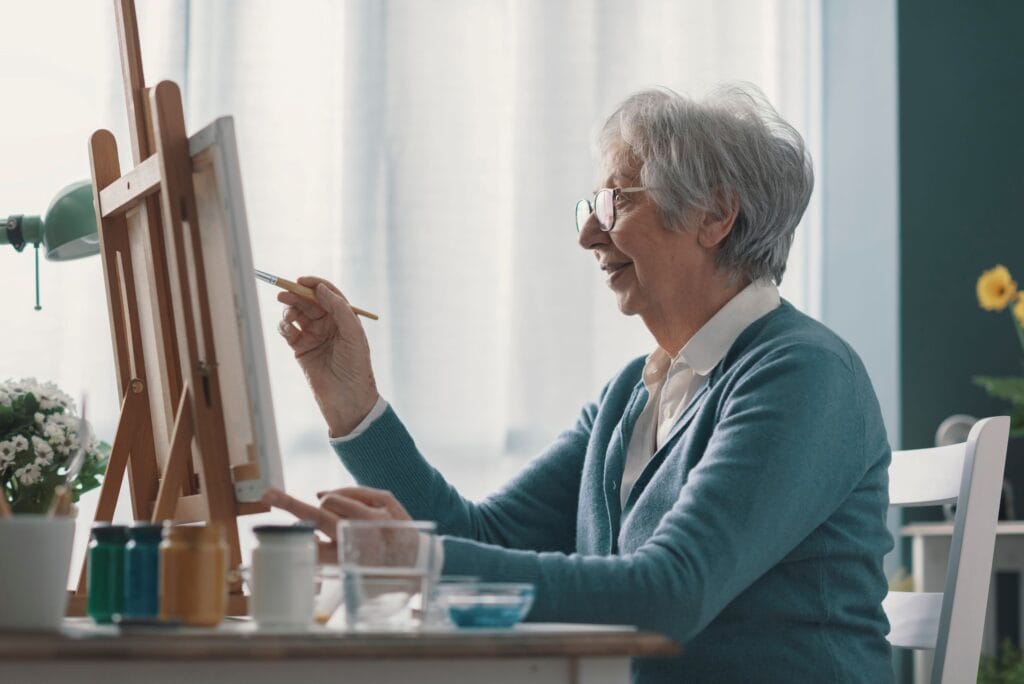
These are activities that allow you to take time away from your grief and start to rebuild life.
Engaging in activities you enjoy – for example, walking, gardening, art or spending time with friends or family may help you feel a sense of normality.
Engaging in self-care – exercise, attending to your health, meditation and yoga are just a few suggestions, however, self-care looks different for everyone. It is important to find what works for you.
Understanding it’s ok to laugh – laughter can be a good distraction from the pain of your grief. Watching a funny movie or talking with friends about funny memories can help give you a bit of relief from the difficult feelings associated with grief.
Spending time engaging in tasks – for example, tidying a cupboard, DIY, housework, cooking or even going to work can all give you a break from grief.
Related articles and resources
Tips to Support Someone Who is Grieving
This article offers practical tips to help support someone who is grieving, from offering practical help with daily tasks to creating a space for open communication and emotional support.
Re-learning How to Cope with Loss and Bereavement
This article offers advice on how to healthily cope with loss by acknowledging your emotions and being kind to yourself throughout the grieving process.
Bereavement and Grief Self-help Guide
A self-help guide from NHS Inform for coping with bereavement and grief that uses cognitive behavioural therapy (CBT).
The Spark will be closed from 9pm 18 December until 5 January 2026. We will respond to your enquiry on our return.
Enquire about counselling today
Whether you’re ready to book an appointment or you just want some more information about counselling use the form below to get in touch.

